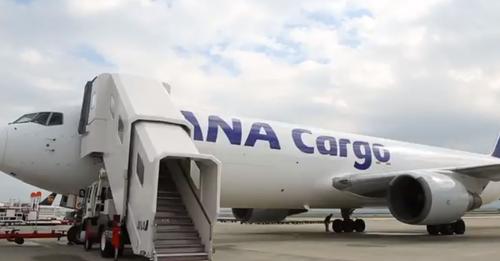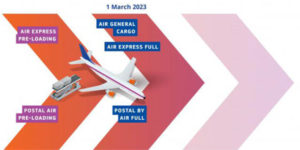
- The customs pre-arrival security and safety program is underpinned by the Import Control System 2 (ICS2) implemented by the European Commission
- Under ICS2, advance declaration by air cargo carriers and forwarders is required
- ICS began with EU express carriers and postal operators in March 2021 and will finish with Release 3 for maritime, road and rail carriers in March 2024
Air carriers and freight forwarders will be required to declare safety and security data on cargoes bound for the European Union in the second phase starting next March under a new advance cargo information system that aims to ensure the safety of the EU and its citizens.
The European Commission began implementing in March 2021 the new customs pre-arrival security and safety program underpinned by a large-scale advance cargo information system, the Import Control System 2 (ICS2).
 The EC said the program is one of the main contributors to establishing an integrated EU approach to reinforce customs risk management under the common risk management framework (CRMF).
The EC said the program is one of the main contributors to establishing an integrated EU approach to reinforce customs risk management under the common risk management framework (CRMF).
“The obligation to start filing such declarations will not be the same for all economic operators. It will depend on the type of services that they provide in the international movement of goods and is linked to the three release dates of ICS2 (15 March 2021, 1 March 2023, and 1 March 2024),” the European Commission said.
Release 1, which went into effect on March 15, 2021, requires express carriers, EU-based postal operators and third-country postal operators shipping to EU to provide pre-loading advance cargo information (PLACI) using the minimum entry summary declaration (ENS) dataset.
More precisely, express carriers and designated postal operators set up in EU (destination posts) will be required by the Union Customs Code to provide a minimum set of advance electronic data in electronic ENS format to the ICS2 for all consignment goods they are bringing into EU.
ICS2 aims to provide an extra security layer to the existing civil aviation security requirements. PLACI, as a subset of the ENS, will be used by EU customs authorities to assess air cargo and mail security risk to detect immediate threats to aviation security.
These threats include articles brought on board aircraft such as improvised explosives (IED) or incendiary devices (IID) that could lead to the destruction of the plane and/or loss of lives.
On March 1, 2023, Release 2 will come into effect, requiring all air cargo carriers and freight forwarders to declare to ICS2 safety and security data on all goods entering the EU prior to their arrival. This must be done through the Entry Summary Declaration (ENS), the EC said.
Release 3 will follow on March 1, 2024. It requires maritime, road and rail carriers to submit ENS data to ICS2. This includes postal and express carriers who transport goods using these modes of transport as well as other parties, such as logistic providers.
In certain circumstances, final consignees established in the EU, will also have to submit ENS data to ICS2, the EC said.
“The European Union makes it a top priority to ensure the security of its citizens and single market. Every year, trillions of euros worth of goods are imported into EU, with the EU-27 now accounting for around 15 % of the world’s trade in goods,” the commission said.
“The pre-arrival security and safety program will support effective risk-based customs controls while facilitating free flow of legitimate trade across the EU external borders. It represents the first line of defense in terms of protection of the EU internal market and the EU consumers,” the EC explained.




